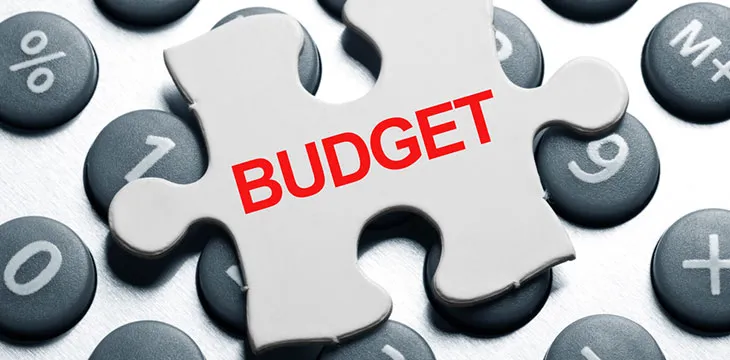|
Getting your Trinity Audio player ready...
|
A rationalized tax regime—that’s the topmost expectation by digital currency players and exchanges alike for Union Budget 2023. India’s Finance Minister Nirmala Sitharaman presented the Union Budget for the financial year 2023-24 on February 1. The question is will the government change its existing taxation policy? Or will their tough stance on virtual digital assets (VDAs) come in the way?
What’s the status quo?
During last year’s budget, the government showed its intention to introduce taxation for digital currency and VDAs. This taxation would be a part of the Income Tax act under Section 115BBH. How does this system work?
Summarizing the government’s intent, Dileep Seinberg, founder of neobank MuffinPay, explained, “The government made it very clear that it does not intend to leave any financial transaction out of the taxation regime. If there is any financial dealing taking place, the government is likely to earn some revenue in form of tax, as clarified by the finance minister last year.”
Currently, a flat 30% tax is levied only on the profits earned from digital currency trading. Investors are also expected to pay an applicable surcharge and a cess worth 4%.
Additionally, investors will not be able to forgo taxes on profits earned if they have incurred a loss on another digital asset. Simply put, each asset would be treated isolatedly.
Having implemented this taxation system, the Indian government revealed an interesting statistic in December 2022. Accordingly, it collected a whopping Rs.60.46 crore from VDA-based transactions starting July 1.
Why the heavy taxation?
According to Rajagopal Menon, Vice President of WazirX, “The Indian government has taken a cautious approach towards the cryptocurrency industry. This is primarily due to concerns raised by the Reserve Bank of India (RBI) about its potential to cause financial instability. The 30% tax on income from cryptocurrency sales is in line with taxes on other forms of income such as lottery winnings.”
Along with financial instability, the government had expressed concerns about creating a parallel economy through digital currency. Frauds and illicit terror funding were also cited as concerns against digital currency trading. And in order to tackle them, the central bank digital currency (CBDC) was introduced into the system as a pilot project, and the Reserve Bank of India is now testing its efficacy.
Simply put, two elements were introduced into the country’s financial system as safety nets against digital currency—taxation and CBDC. But both tools have made it difficult for investors to profit from digital currency trading.
“The lack of setoff from losses, however, makes it difficult for traders. Additionally, the 1% TDS deduction by the buyer from the amount owed to the seller has decreased the capital of day traders and short-term investors. The government aims to track crypto investors who may not be declaring their crypto assets when filing their tax returns,” Menon explained.
Expectations from Budget 2023
Experts from each industry have expressed their expectations from this year’s budget, and digital currency experts are no exception.
Primarily, there are two expectations or, better yet, requests for the union government. The first relates to TDS, while the second has more to do with regulations surrounding VDA and digital currencies.
“Notably, through our representation for the upcoming Union Budget 2023 – 2024, we have suggested that the rate of TDS be brought down to 0.01%. This lower rate will help Indian VDA businesses offer competitive prices to VDA users and protect them from exposure to unregulated foreign exchanges,” CoinDCX co-founder and CEO Sumit Gupta said.
Seinberg, on the other hand, believed the reduction in digital currency taxation is a far cry. Even then, he stated that, “The reduction in taxation on VDAs is highly unlikely as the government has not made its stance on the crypto assets clear yet. Apart from this, the government has made a significant amount of revenue from crypto taxation. However, the government may and should announce some rationalization of the 1% TDS levied on crypto trades. There has been a demand to take it down to 0.01%. Let’s see what the finance minister announces during her speech.”
In addition to a reduction in TDS, the digital currency industry wants the government to declare digital asset as “regulated” or “centralized.” Only then can regulations governing the asset be introduced and followed by the industry.
Menon expressed a similar opinion by reiterating, “There is an urgent need in India for clear and consistent regulations governing the crypto industry. This entails classifying cryptocurrency as a regulated asset class. Cryptos, like securities, should be classified as a suitable asset class.”
“The tax slabs and set-off benefits applicable to securities as an asset class should also apply to crypto assets. Securities are classified as an asset class based on their risk, with products ranging from low-risk government bonds to high-risk derivatives. As a result, cryptos must be properly classified and regulated so that investors can understand the risks and invest accordingly,” he stated.
Expectations may be justified, but given RBI’s opposing stance to digital currency, these demands had been sidelined during the Budget 2023 announcement.
Watch: India is ripe for decentralization

 07-15-2025
07-15-2025 





